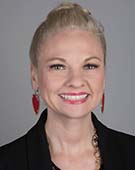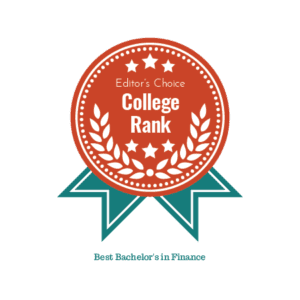Bachelor's in Early Childhood Education
Do you want to make a difference in the lives of children during their most formative years? Do you want to help children learn and grow, but also grow yourself? Then Early Childhood Education might be the bachelor's degree for you!
Students earning an Early Childhood Education degree learn effective strategies to teach students in PK-3rd grades.
The Early Childhood Education major prepares students to teach in diverse and inclusive environments, including homes, schools and other community settings which serve children from birth to age eight and their families. Graduates will know how to design, implement and evaluate curriculum in a variety of settings that promote positive learning outcomes for each child.
NSU's Early Childhood degree is ranked one of the best programs in the nation. NSU is Oklahoma's fourth largest public four-year institution. Ranked in the top three for most affordable university tuition, NSU is a cost-effective way to earn a college degree.
Student Learning Outcomes
- Identify children’s characteristics and needs.
- Identify multiple interacting influences on children’s development and learning
- Use content knowledge to design and implement meaningful and challenging curriculum that promotes development and learning for each child.
- Use developmentally appropriate assessment strategies in ways that promote positive outcomes for each child.
- Use a wide array of instructional strategies and tools that connect children and families and positively influence each child’s development and learning.
- Conduct themselves as members of the early childhood profession.
- Use ethical guidelines and other professional standards related to early childhood practice.
- Implement strategies that foster dispositions that lead to life-long learning.
Certification (3196) Professional Educ Requirements - 29 hrs
- EDUC 3313 - Clinical Teaching/Pre-Internship I
- EDUC 3113 - Educational Psychology
- SPED 4433 - Introduction to Education of Children with Exceptionalities
- ECED 4513 - Organization & Implementation of Early Childhood Programs
- EDUC 4823 - Technology and the 21st Century Learner
- EDUC 4032 - Pre-Internship II
- EDUC 4044 - Elementary Intern Teaching
- EDUC 4054 - Elementary Intern Teaching (Full Internship Program)
- EDUC 4172 - Assessment and Evaluation
- EDUC 4252 - Seminar
Non-Certification (3197) Professional Educ Requirements - 29 hrs
- EDUC 3313 - Clinical Teaching/Pre-Internship I
- EDUC 3113 - Educational Psychology
- SPED 4433 - Introduction to Education of Children with Exceptionalities
- ECED 4513 - Organization & Implementation of Early Childhood Programs
- EDUC 4823 - Technology and the 21st Century Learner
- EDUC 4032 - Pre-Internship II
-
Complete 12 additional hours of electives with advisor and department chair approval.
Accelerated B.S.Ed. Early Childhood Education to M.Ed. Early Childhood Education
Note: Please refer to Accelerated Bachelor’s to Master’s Degree Program for complete information concerning the Accelerated Degree Program. Refer to the current Graduate Catalog for master’s degree requirements.
IMPORTANT:
- Students admitted to the Accelerated B.S.Ed. Early Childhood Education to M.Ed. Early Childhood Education degree program will complete up to 6 hours of graduate level credit to apply toward both the undergraduate and graduate degrees.
- Students may not receive credit toward the bachelor’s degree for both the undergraduate and the paired graduate-level course. A student completing an undergraduate course and the paired graduate-level course will only receive credit for one course toward the bachelor’s degree.
- Students must meet all minimum grade and GPA requirements for the undergraduate program.
- A minimum grade of C is required for all 5000 level graduate courses.
- Students who do not follow the approved degree plan may become ineligible to continue in the accelerated degree program.
- Prior to completing the undergraduate degree, if the undergraduate GPA, graduate GPA and/or overall GPA fall below a 3.00, the student becomes ineligible to continue in the ADP.
- Students may withdraw from an approved accelerated degree pathway. Graduate credit hours completed prior to the student withdrawing or becoming ineligible to continue in the ADP apply toward the undergraduate degree only.
ADP Paired Courses
ADP Paired Courses
| ECED 4813-Birth to Two Development | ECED 5213-Infant and Toddlers |
| A maximum of one 5000 level course from the following may count toward the B.S.Ed. | |
| ECED 4113-Creative Expression for Early Childhood | ECED 5113-Creative Expression for Early Childhood |
| ECED 4313-Development of Early Childhood Programs | ECED 5313-Development of Early Childhood Programs |
| ECED 4563-Classroom Management for Early Childhood | ECED 5763-Classroom Management for Early Childhood |
Teacher Education Admission and Certification Policies
In addition to courses in the discipline, all students completing a baccalaureate degree that leads to teacher certification must meet the following requirements for certification.
- Be accepted for admission to teacher education, pre-II internship, and full internship according to published course sequence and guidelines.
- Demonstrate proficiency at the high novice level in a language other than English.
- Complete all courses in the major and Professional Education Core with a grade of “C” or higher.
- Students entering NSU beginning Fall 2013 must have an overall GPA of 2.75 for admission to teacher education.
- Once admitted to the teacher education program, all majors must continue to maintain a GPA of 2.5 (overall and in their major field of study) through completion.
- 4 X 12 requirement - Early Childhood, Elementary Education, and Special Education programs require completion of 12 semester hours with a grade of “C” or better in the following disciplines: Communication Arts (English, Communication, Literature), Math, Science, and Social Science (Economics, Geography, History, Political Science, Psychology, Sociology) prior to graduation.
- All Professional Education majors must complete PSYC 1003 or PSYC 1113. Advisors recommend those courses be completed as part of the General Education course sequence.
Degree Available At
- Tahlequah
- Broken Arrow
Transferring to NSU?
Make your transition to NSU as smooth and seamless as possible.
Visit Transfer Student Services for more information.
Career Services
PROGRAM CHAIR

Dr. Kimberly Phillips
philliki@nsuok.edu
(918) 444-3753
Licensure Programs
Northeastern State University offers initial teacher licensure programs at the traditional undergraduate level for graduates wishing to teach in Oklahoma. We also offer advanced licensure programs and programs for other school professionals at the graduate level. We do not guarantee to meet the licensure requirements of other states. You will be responsible for verifying that your program of study meets your desired state's licensure requirements.
Professional Licensure Disclosure
Programs at Northeastern State University that prepare students for initial licensure as educators are designed to meet the licensure standards set by the Oklahoma State Department of Education. Students seeking licensure in another state are advised to contact the appropriate licensing board in that state to determine specific requirements of guidelines for reciprocity. Northeastern State University cannot confirm whether a particular licensure program meets requirements for licensure outside of the State of Oklahoma. For a list of the state departments of education that oversee professional teaching licensure, see the U.S. Department of Education website - State Contacts page. Click here for NSU's state-specific matrix.
For questions related to licensure, please contact the NSU Teacher Certification office at 918-444-3702.
career opportunities
Transfer student?
TRANSFERRING TO NSU?
Make your transition to NSU as smooth and seamless as possible.
Visit Transfer Student Services for more information.


